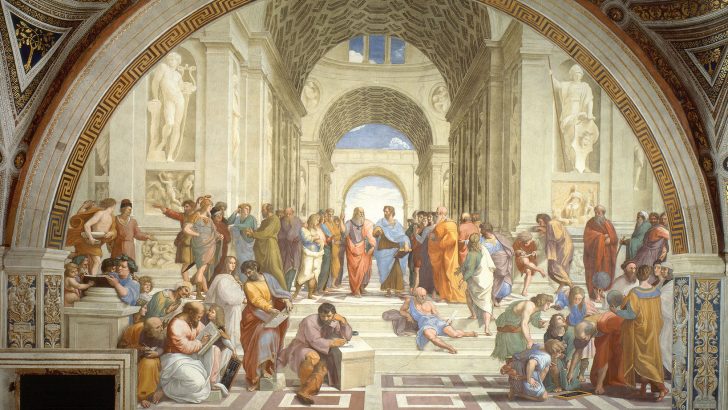Philosophy primarily seeks to uncover what it is to be, a truth presupposed by our other theoretical disciplines but never established by them, writes Dr Gaven Kerr
Go to the philosophy section in any high street bookshop and you will usually find it sandwiched between the new age section and the self-help section. Philosophy today has taken on the air of a malleable outlook on life, love, and the universe; a subject within which one can think what one wants without challenge, and exclaim any view without support. Needless to say, this is not what I practice as a professional academic philosopher, nor does it characterise the nature and significance of philosophy.
When we think of goods, we can divide goods into those that have a use and those that we pursue for their own sake. Money, food, ‘things’ are useful goods; they assist us in the living of our lives. But insofar as they are merely useful, they are not what we live our lives for. By contrast, there are goods for which we live, family, children, happiness etc. These are goods in themselves that are not just useful, but for which we make use of other things. For example, money and food are useful goods, and they are useful because they make it easy to enjoy the good of family life.
The same distinction between goods can be applied to disciplines of learning. There are disciplines that are merely useful insofar as we make some practical use out of what we learn; medicine and engineering are key examples. Yet, there are disciplines that are not merely useful, but without which the useful disciplines would be useless. These are theoretical disciplines such as mathematics, chemistry, biology etc which inform our practical disciplines. The theoretical disciplines are like the goods for which we live insofar as they are sought not for any further purpose, but can be enjoyed in themselves.
Philosophy is such a theoretical discipline insofar as it seeks to discover something about the nature of reality (often referred to as ‘being’) and our place within it. Philosophy can be put to use in a practical manner, for example in ethics whereby we try to figure out how to be good. But philosophy primarily is a theoretical discipline which considers the nature of reality. This primary or first philosophy focuses on reality and seeks to say something about it. In contrast to mathematics and natural science, what philosophy seeks to understand is not some particular domain or field of inquiry; rather philosophy primarily seeks to uncover what it is to be – a truth presupposed by our other theoretical disciplines but never established by them.
Metaphysics
At the very beginning of his Metaphysics Aristotle argued that by nature all men desire to know. Philosophy itself is a good for human life insofar as it satisfies man’s desire to know. This is what sets us off from non-rational animals. By contrast with other animals, man does not rest once his basic physical needs are met; man begins to think, to wonder, and in such wonder the desire to know, and thus philosophy, emerges. Philosophy is a response to the wonder that comes about when the troubles of life do not face us. And such philosophy arrives once our basic goods such as food and shelter and leisure are met, philosophy is itself a good more fundamental than these other goods for which we strive.
Given that philosophy is a fundamental study into the nature of being and seeks to unearth what it is to be, philosophy is not a quaint subject on a par with popular self-help guides or new age mysticism. Philosophy is a serious intellectual discipline by which views on the nature of reality are considered and either accepted or rejected. Not only that, insofar as philosophy considers the nature of reality and presents itself as an answer to one of our deepest longings, philosophy has always naturally allied itself with theology. This is because in the consideration of reality we naturally consider the cause of reality; and in being a response of our fundamental desires, philosophy finds its goal in that which fulfils all human desire, i.e. the vision of God. The work of philosophy, whilst wholly based on natural reason, finds its culmination in that which transcends reason. It is common then to see in philosophical discussions considerations of the existence of God, proofs of God, the nature of God, man’s place in the universe, how man ought to live etc. These questions can all be addressed from the standpoint of natural philosophical reason and then integrated with revelation so that the water of philosophy is transformed into the wine of theology.
Dr Gaven Kerr is a lecturer in philosophy at St Patrick’s College, Maynooth. This article is part of a new regular column where philosophers from Maynooth Drs Gaven Kerr and Philip Gonzales offer accessible introductory thoughts on perennial themes in the history of philosophy and the Catholic tradition.


 The School of Athens fresco by Raphael was painted between 1509 and 1511 in the Apostolic Palace in the Vatican to represent philosophy
The School of Athens fresco by Raphael was painted between 1509 and 1511 in the Apostolic Palace in the Vatican to represent philosophy 